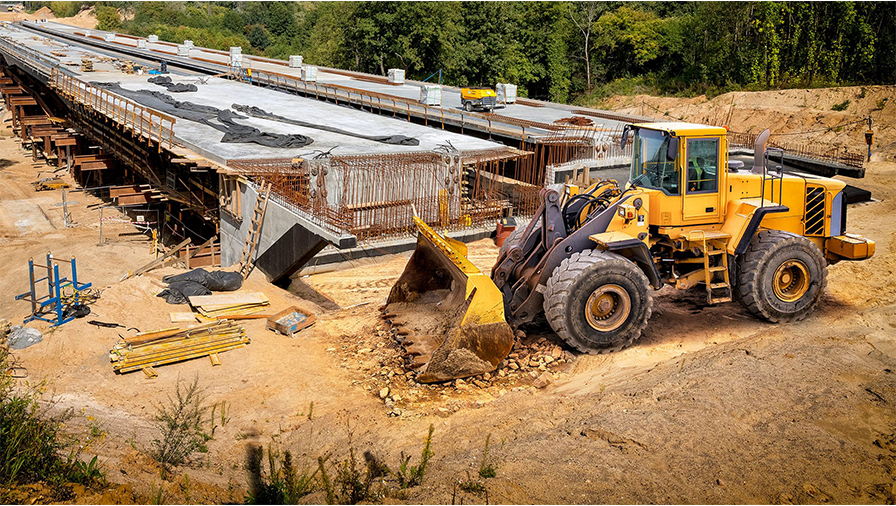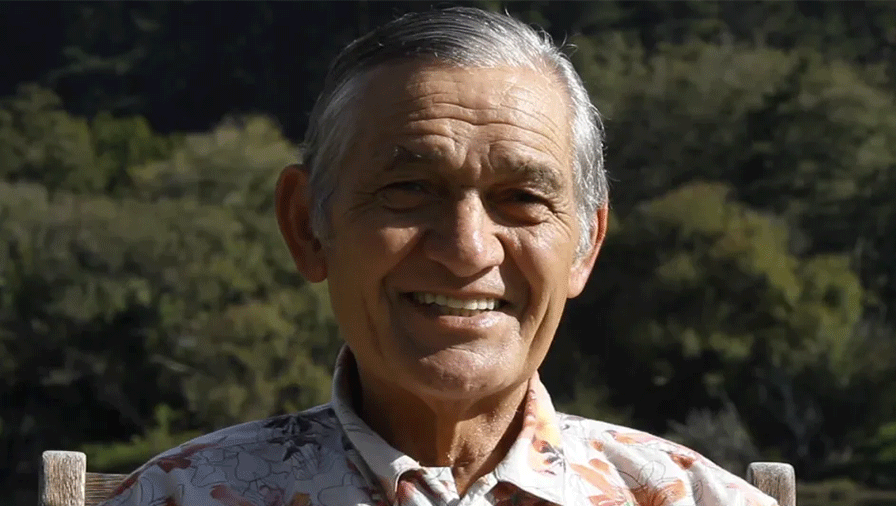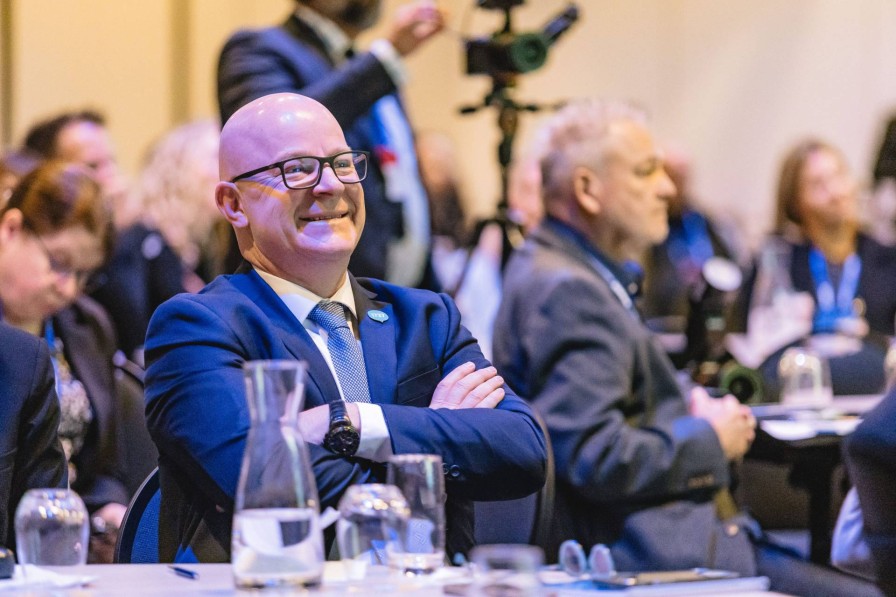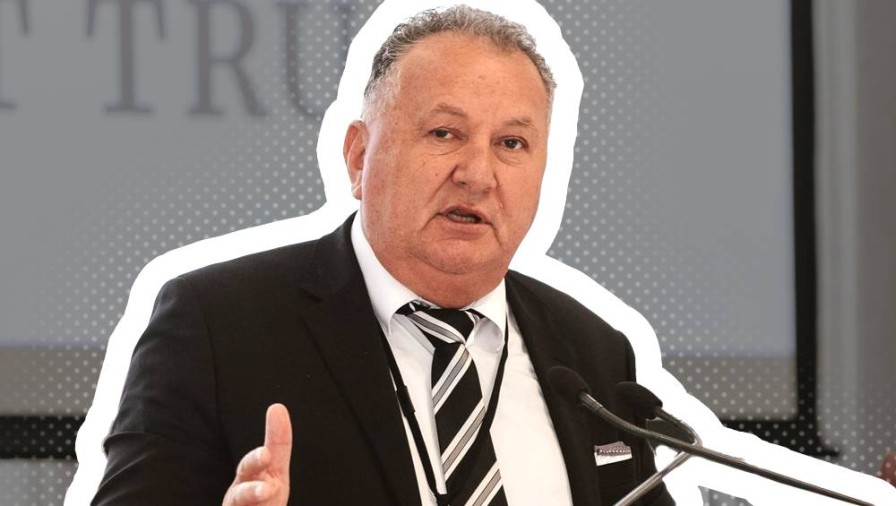

Transport spend-up, competition shake-up, Kiingitanga, and sorry
The Government is promising to bring competition to the supermarket, banking, electricity, and building products sectors.
WACTH: Grant Walker speaks with Brent Edwards


The Government is promising to bring competition to the supermarket, banking, electricity, and building products sectors.
WACTH: Grant Walker speaks with Brent Edwards
Nearly $33 billion dollars seems like a lot of money.
Or, as NBR presenter Grant Walker says, the $32.9b the coalition Government announced this week to be spent on transport infrastructure is a lot of “your money”.
When the New Zealand Transport Agency released its National Land Transport Programme, it delivered on the Government’s plan to spend more on roads and less on cycleways and walking.
Transport Minister Simeon Brown was also pleased the plan scraps any money for speed bumps, saying it is all about ensuring local councils were doing the “basics brilliantly”.
It is a record spend on transport, with the Government’s Roads of national significance getting a big boost, as well as funding for maintenance and the prevention of potholes.
As well, $6.4b is committed to public transport but both the Labour and Green Parties criticised the plan for shifting the emphasis away from public transport to simply building more roads.
No-one should have been surprised by what was in the plan, though, because it simply delivered on the Government Policy statement on land transport that Brown had released earlier in the year.

There is plenty of money for new road construction.
Meanwhile, the Government is continuing with its plan to inject more competition into markets it believes are too dominated by big players.
The first annual grocery report confirmed little had changed in the sector since the Commerce Commission had done its market study on supermarkets. That will be of little surprise to consumers.
Commerce and Consumer Affairs Minister Andrew Bayly said he welcomed the commission’s decision that, based on this report, it would use new regulatory powers to shake up the sector.
But Bayly said more changes were needed and the Government would deliver those, having already announced a review of the Overseas Investment Act and reform of resource management.
He also announced plans to shake up the banking and electricity sectors, with the Government consulting on the development of regulations for open banking and open electricity under the Customer and Product Data Bill, currently going through Parliament.
Bayly said that, under current rules, banks and electricity companies operated inside a “walled garden”.
“Both sectors are dominated by a handful of large, profitable companies that face little competition. New entrants face high barriers to entry and, as a result, consumers do not benefit from innovative new products and services,” he said.
The Government expects opening both sectors up to more competition will also result in lower prices for consumers.

The country’s Big Four banks are in the gun as the Government wants to make the banking sector more competitive.
Much of the country’s attention this week was focused on Tūrangawaewae Marae and the tangihanga of Kiingi Tuheitia and the appointment of his daughter – now Kuini Nga wai hono I te po – as his successor.
Prime Minister Christopher Luxon went to Tūrangawaewae Marae at the weekend before heading off on an official visit to Malaysia and South Korea. Other political leaders followed on Wednesday.
Walker wonders whether the last week might lead the coalition Government to change its tack on Māori issues.
That is unlikely. In its coalition agreement with the Act Party, National committed to support a Treaty Principles Bill being introduced to Parliament and going to select committee.
But Luxon has been adamant throughout that, when the Bill comes back to Parliament from the select committee, National will vote against it. The issue has, however, sharpened Crown-Māori relations and there is likely to be further divisive debate before it settles down.
Kiingi Tuheitia had been hailed for bringing Māori together over the issue.
Former Labour Treaty Negotiations Minister Andrew Little told RNZ Kiingitanga was playing a crucial role as a unifying force during a time when there were threats to the progress that had been made in the Crown-Māori relationship.
Māori Development Minister Tama Potaka acknowledged the country faced quite challenging topics. But he said that, what was important to Māori was their cultural identity and the responsibility they had to Te Taiao and to their awa and their maunga.
“Government policies probably come and go, but the need for us to look after our environment, the need for us to look after our people, not only Māori but all New Zealanders, pervades,” RNZ reported him as saying.

Kiingi Tuheitia, who was buried this week.
Tourism was also in the news this week, with CNN reporting on the Government’s decision to triple the visitor levy to $100 and warn that it could also take longer to get a visitor visa.
Hardly the sort of international news the country’s still struggling tourism industry would like to get.
But Tourism Minister Matt Doocey is adamant the increase in the International visitor conservation and tourism levy will have no effect on visitor numbers, saying international tourists spent more than $11b in the year ending March 2024.
Doocey said public consultation found 93% of submitters in favour of the increase and New Zealand still remained competitive with countries such as Australia and the UK.
Just a day later, more up-to-date numbers showed international tourism contributed $11.6b in the year to the end of June.
Doocey said the numbers showed that international tourism was continuing to rebound.
That is true but they are still not back to where they were before the Covid-19 pandemic. In June this year, 278,000 international tourists came here on a seasonally adjusted basis, compared with 327,000 in the same month in 2019.
The Government might have possibly thought to wait for the industry to get back to pre-Covid levels before taking steps that might be seen as making New Zealand a less attractive tourist destination.

Tourism Minister Matt Doocey.
This week there was also the unusual spectacle of not one, but two politicians apologising for getting things wrong.
First, Labour’s police spokesperson Ginny Andersen issued a mea culpa for claiming wrongly that there were fewer police foot patrols, despite there being more.
Andersen told Newstalk ZB it was not deliberate, but Police Minister Mark Mitchell accused her of “deliberately misleading the public”.
Then, after getting a dressing down from Attorney-General Judith Collins, Regional Development Minister and New Zealand First deputy leader Shane Jones apologised for referring to High Court Justice Cheryl Gwyn as a “communist”.
Collins’ admonishment was backed up by Deputy Prime Minister and New Zealand First leader Winston Peters.
“Judith is right. You can’t have those sorts of comments about a judge,” Peters told radio programme The Country on Tuesday.
Jones took it on the chin, admitting he had got a clear message from Collins in the same week he turned 65 and thanked Peters for getting his gold card.
Walker was particularly amused at reports that Collins now expected age would lead Jones to start moderating his language.
Don’t hold your breath.

Regional Development Minister and New Zealand deputy leader Shane Jones apologised and turned 65, all in one week.
Luxon, who had earlier shown more tolerance of Jones’s comments, missed all this as he was in Malaysia and South Korea trying to strengthen relationships with both countries and do more business.
At the end of the Malaysia visit, he and Malaysian Prime Minister Anwar Ibrahim released a joint statement emphasising the two countries’ commitment to the bilateral strategic partnership. They agreed on a shared ambition to increase two-way trade by 50% over the next six years and announced work towards reviewing the free trade agreement between the two countries.
In Seoul, Luxon said he and Korean President Yoon Suk Yeol agreed to explore the possibility of an upgrade to the two countries’ bilateral free trade agreement.
His final statement from the trip on Friday stated: “Prime Minister Christopher Luxon has concluded a successful trip to Korea.”
Next week he will confront the realities of parliamentary politics when Parliament resumes sitting after a one-week recess.
Parliament sits for the following three weeks, during which time legislation aimed at bringing more competition to the building products sector will be introduced to help expand the availability of overseas building products and lower costs to consumers.
Brent Edwards is the NBR’s political editor.
Sign up to get the latest stories and insights delivered to your inbox – free, every day.